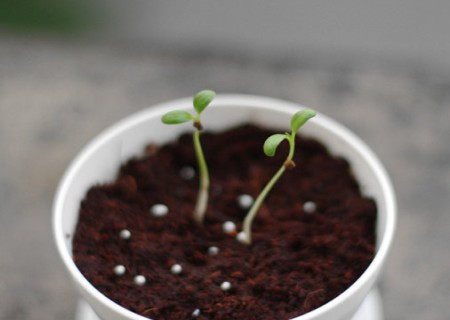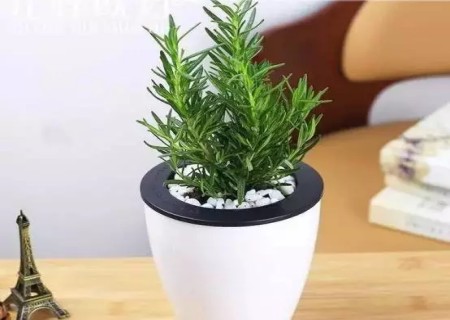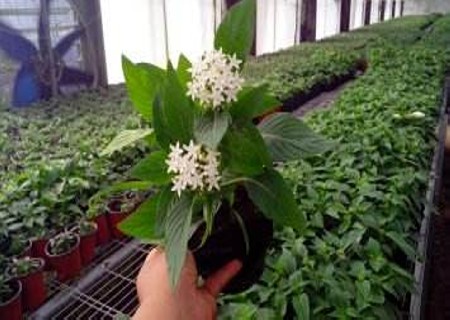Planting methods and matters needing attention of Rosemary seed
Nowadays, planting green plants at home has become a fashion, and people are busy planting flowers, raising succulent plants and even growing vegetables. Today, the editor will specially recommend to you a very useful and ornamental plant-vanilla!
Vanilla has not only ornamental value, but also medicinal value and edible value. In addition, it can also be used to do SPA beauty. As a fully functional and well-fed plant, vanilla is really suitable for taking home! But there are almost 3000 kinds of vanilla in the world. Which ones are the most suitable for keeping at home? Here, the editor recommends a potted plant that is more rosemary. The following is to introduce rosemary seed planting methods and matters needing attention.

Rosemary likes warmth, the air is sparse, and it needs to avoid cold currents in winter; its growth is slow and its regeneration ability is not strong. Because it can secrete glue, it should be folded with gloves. Rosemary germinates slowly and the germination rate is poor when the seed is propagated. According to the literature, when the germination temperature is between 20 ℃ and 24 ℃, the germination rate is less than 30%, and the germination time is as long as 3-4 weeks, but if it is germinated one week before 20 ℃ to 24 ℃ and then treated at 4.4 ℃ (40 ℉) for 4 weeks, the germination rate can be increased to 70%.
1. Sowing: generally sowing in early spring and no need to cover the soil, sow the seeds directly on the surface of the medium, properly sparse a little, and the seeds are developed by the water at the bottom of the seedling bed (you can use the method of soaking basin to supply water, or you can spray water gently). But always keep the soil surface moist, when the seedling grows to about 10 cm, it can be planted in about 70 days.
2. Transplant: generally transplant to a flowerpot with a diameter of 10 cm, and plant it in a pot of 10 cm for 6 to 10 weeks, depending on the variety and season. During this period, pruning in time to better grow lateral branches, each pruning should not exceed half of the branch length.
3. Fertilization: 14-4-14 is generally used, and the concentration of 125ppm is suitable. During this period, the matrix pH value is kept at 5.8 to 6.2. if you are worried about the change of pH, nitrate nitrogen can be used instead of ammonium nitrogen in winter. At ordinary times, the use of chelated iron can help to maintain the suitable pH value of the matrix.
4. Watering: it is the most critical technology in the process of planting rosemary. The basic principle is: if you are not sure whether it should be watered today, then water it again tomorrow, that is, rosemary is afraid of being wet and not afraid of drying. After transplanting, it is necessary to pour enough fixed root water, and do not dump the seedlings when watering. If there is lodging, it should be righted and stabilized in time. Planting rosemary is best when it is cloudy, rainy and sunny in the morning and evening.
5. Diseases and insect pests: in a humid environment, root rot and gray mold are common diseases of rosemary. If the rosemary plant wilts while the substrate is still wet, the plant needs to be removed from the greenhouse immediately. The most common pests are red leaf mites and white whitefly. At present, the most ideal method is to use biological control. No matter what kind of diseases and insect pests, focus on prevention, can start from the sanitary condition, appropriate water management, reasonable temperature and light, and need frequent observation and timely elimination of weak plants.
Rosemary is suitable for growing in warm climates. it is a relatively delicate plant with slow growth and weak regeneration ability, so it takes great care to grow rosemary and need to pay attention to the following aspects:
1. Ventilation: to plant rosemary, to achieve air permeability, choose sandy soil with good drainage and put it in a ventilated place.
2, temperature: Rosemary cultivation, the most need to pay attention to the temperature, winter and summer, the temperature is not too high, not too low.
3. Lighting: Rosemary should have enough sunlight, clean up the aged branches and leaves in time, and prevent diseases and insect pests.
4. Planting: the regeneration ability of rosemary is low. If you buy a plant and plant it yourself, you usually have to cultivate it in nutritious soil for a month before transplanting. In the process of planting, you also need to pay attention to this characteristic of its regeneration ability.
5. Pruning: Rosemary grows to a certain height, you can trim it yourself, choose a certain shape, according to your own needs.
6. Ramet: if you want to plant rosemary, you do not necessarily need seeds or buy it from the outside, you can use cutting methods to plant, according to the general cutting methods can be operated, but more troublesome.
Time: 2019-05-24 Click:
- Prev

Planting method of potted rosemary
Rosemary has a pleasant aroma and has been used in religious rituals as early as ancient times. Because rosemary was first found on the cliffs along the Mediterranean coast, it is called the dew in the sea. Speaking of rosemary, everyone may think of Jay Chou's song, but how many people know about rosemary?
- Next

Planting and cultivation techniques of starry flowers
Star flowers, also known as five-star flowers, have excellent height, plant shape and color, and can be matched with petunia or peacock grass to produce summer colors. It is heat-resistant and drought-resistant, can overcome extreme heat and humidity, and continues to blossom until frost. Small flowers in the shape of five-pointed stars are scattered among the large flowers.
Related
- Fuxing push coffee new agricultural production and marketing class: lack of small-scale processing plants
- Jujube rice field leisure farm deep ploughing Yilan for five years to create a space for organic food and play
- Nongyu Farm-A trial of organic papaya for brave women with advanced technology
- Four points for attention in the prevention and control of diseases and insect pests of edible fungi
- How to add nutrient solution to Edible Fungi
- Is there any good way to control edible fungus mites?
- Open Inoculation Technology of Edible Fungi
- Is there any clever way to use fertilizer for edible fungus in winter?
- What agents are used to kill the pathogens of edible fungi in the mushroom shed?
- Rapid drying of Edible Fungi

